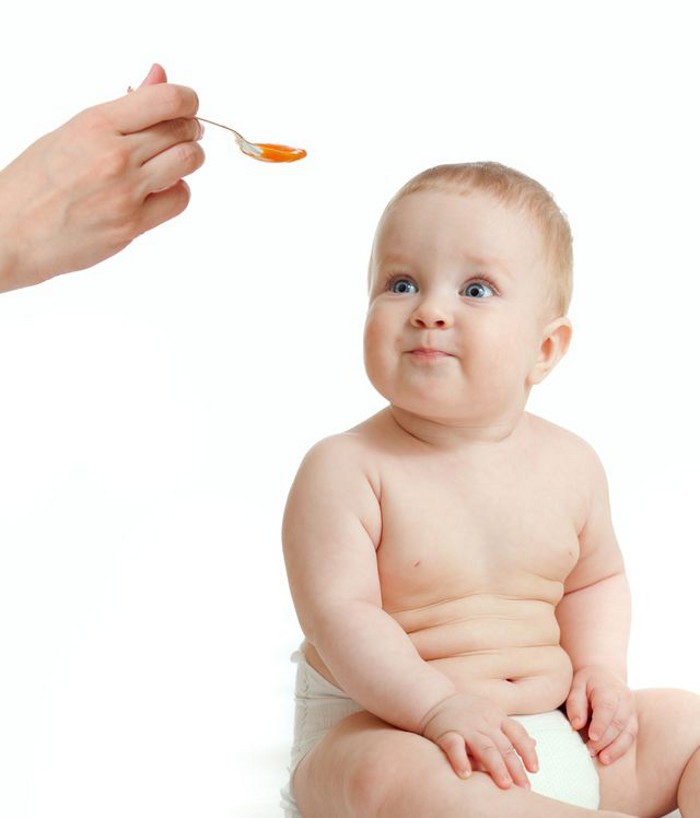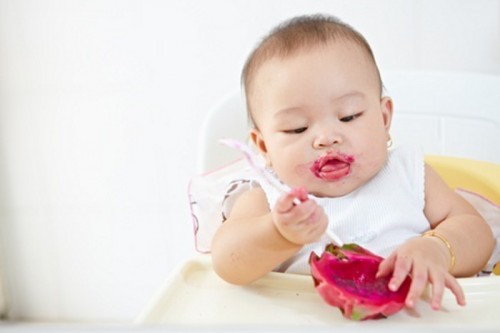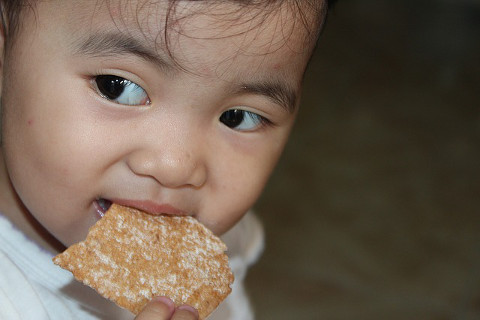What are the foods that babies and young children should refrain from eating?

If your baby is below 1 years of age, refrain from giving them…
- Honey: Intake of honey in a young infant can lead to infant botulism. This is due to spores of Clostridium botulinum, which causes botulism. An adult’s intestinal tract can prevent the growth of these spores, but in a baby the spores can grow and produce life-threatening toxins.
- Whole cow’s milk and soy milk: Your baby can’t digest the protein in cow’s milk and soy milk for the first year and they don’t have all the nutrients he needs. Choose infant formula or follow-on formula instead.
- Any food that increases the likelihood of choking (see below)
If your baby is above 1 years of age, refrain from giving them…
- Large food chunks: This is due to a choking hazard. Vegetables should be cooked and cut up into bite-sized pieces as tolerated by your child. Cut grapes, hot dogs and cherry tomatoes before serving. Shred or cut meats into thin slices or small pieces.
- Small, hard food: Hard sweets, nuts, and popcorn are potential choking hazards. Seeds may be too small to choke on but can get stuck in a child’s airway and cause an infection.
- Soft, sticky food: Avoid chewing gum and soft foods like marshmallows and jelly or gummy bears that might get lodged in your child’s throat. Peanut butter is a potential choking hazard if your child tries to eat a large chunk of it. Spread peanut butter thinly on bread, together with your bread spread or margarine to thin it and reduce chances of choking.
- Fish and shellfish: Avoid shark, swordfish, tilefish and king mackerel as these are found to have higher levels of mercury. Eat a variety of fish and check with local advisories e.g. AVA for any updates on safety issues.

Introducing Solids to your Baby
Doctors used to recommend waiting until age 1 or even much later to introduce solid foods that are common allergens, especially with children at risk for allergies. But the American Academy of Pediatrics (AAP) has changed its guidelines because studies show that these delays probably don’t help keep allergies from developing.
You should still introduce new foods gradually, in small amounts initially to observe for any allergic effects, to make sure your child does not have any reactions. If there is a family history of allergies, check with his doctor to determine the best strategy for introducing allergenic foods like eggs, milk, peanuts, wheat, soy, tree nuts, fish, and shellfish.
Source: American Academy of Paediatrics
Ms Suzanne Khor, Senior Dietician from Thomson Paediatric Centre (The Child Development Centre).
This article was first published in The New Age Parents e-magazine.
* * * * *
Like what you see here? Get parenting tips and stories straight to your inbox! Join our mailing list here.
Want to be heard 👂 and seen 👀 by over 100,000 parents in Singapore? We can help! Leave your contact here and we’ll be in touch.

























































Leave a Comment: